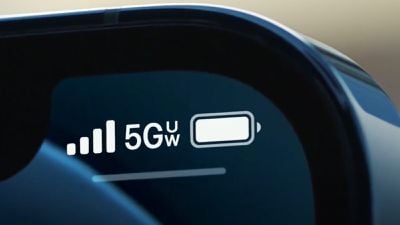Greater Share of iPhone 13 Models Expected to Support Ultra-Fast mmWave 5G
More than 50% of iPhone 13 models set to be shipped later this year will support mmWave, according to a paywalled preview of a DigiTimes report, in line with rumors that mmWave will be supported in more regions.

"Apple will launch its next-generation iPhone series - tentatively dubbed the iPhone 13 - later in 2021, according to industry sources, which believe that more than 50% of the total iPhone 13s set to be shipped this year will be 5G mmWave models," the preview said. The full report should be published by tomorrow with additional details.
Apple analyst Ming-Chi Kuo and other sources have claimed that iPhone 13 models will support ultra-fast mmWave 5G bands in additional countries, with likely candidates including Canada, Japan, Australia, and some European countries. By comparison, mmWave support on iPhone 12 models is limited to the United States.
mmWave is a set of 5G frequencies that promise ultra-fast speeds at short distances, which is suitable for dense urban areas. By comparison, sub-6GHz 5G is generally slower than mmWave, but the signals travel further, better serving suburban and rural areas.
When we tested Verizon's mmWave network with a Samsung smartphone in Chicago in mid-2019, we were able to hit download speeds of close to 2Gb/s, but speeds vary drastically based on your position and proximity to the nearest 5G tower. For a more detailed comparison of 5G bands, read our mmWave vs. sub-6GHz 5G iPhone Guide.
Popular Stories
Despite being more than two years old, Apple's AirPods Pro 2 still dominate the premium wireless‑earbud space, thanks to a potent mix of top‑tier audio, class‑leading noise cancellation, and Apple's habit of delivering major new features through software updates. With AirPods Pro 3 widely expected to arrive in 2025, prospective buyers now face a familiar dilemma: snap up the proven...
If you have been experiencing issues with wireless CarPlay in your vehicle lately, it was likely due to a software bug that has now been fixed.
Apple released iOS 18.4.1 today, and the update's release notes say it "addresses a rare issue that prevents wireless CarPlay connection in certain vehicles."
If wireless CarPlay was acting up for you, updating your iPhone to iOS 18.4.1 should...
Apple's iPhone development roadmap runs several years into the future and the company is continually working with suppliers on several successive iPhone models simultaneously, which is why we often get rumored features months ahead of launch. The iPhone 17 series is no different, and we already have a good idea of what to expect from Apple's 2025 smartphone lineup.
If you skipped the iPhone...
Apple is preparing a "bold" new iPhone Pro model for the iPhone's 20th anniversary in 2027, according to Bloomberg's Mark Gurman. As part of what's being described as a "major shake-up," Apple is said to be developing a design that makes more extensive use of glass – and this could point directly to the display itself.
Here's the case for Apple releasing a truly all-screen iPhone with no...
While the iPhone 17 Pro and iPhone 17 Pro Max are not expected to launch until September, there are already plenty of rumors about the devices.
Subscribe to the MacRumors YouTube channel for more videos.
Below, we recap key changes rumored for the iPhone 17 Pro models as of April 2025:
Aluminum frame: iPhone 17 Pro models are rumored to have an aluminum frame, whereas the iPhone 15 Pro and ...
The first iOS 19 beta is less than two months away, and there are already a handful of new features that are expected with the update.
Apple should release the first iOS 19 beta to developers immediately following the WWDC 2025 keynote, which is scheduled for Monday, June 9. Following beta testing, the update should be released to the general public in September.
Below, we recap the key...
This week saw rumor updates on the iPhone 17 Pro and next-generation Vision Pro, while a minor iOS 18.4.1 update delivered not just security fixes but also a fix for some CarPlay issues.
We also looked ahead at what else is in Apple's pipeline for the rest of 2025 and even the 20th-anniversary iPhone coming in 2027, so read on below for all the details on these stories and more!
iPhone 17 ...
Apple today released tvOS 18.4.1, a minor update to the tvOS 18 operating system that came out last September. tvOS 18.4.1 comes two weeks after Apple released tvOS 18.4, and it is available for the Apple TV 4K and Apple TV HD models.
tvOS 18.4.1 can be downloaded using the Settings app on the Apple TV. Open up Settings and go to System > Software Update to get the new software....
Apple TV+ is currently available at a much lower price than usual, but time is running out if you want to take advantage of the offer.
In the U.S., new and qualified returning customers can subscribe to Apple TV+ for just $2.99 per month, for three months. Afterwards, regular pricing of $9.99 per month applies. The offer is available in the Apple TV app, and at tv.apple.com, through April...
























